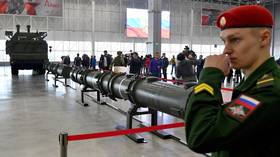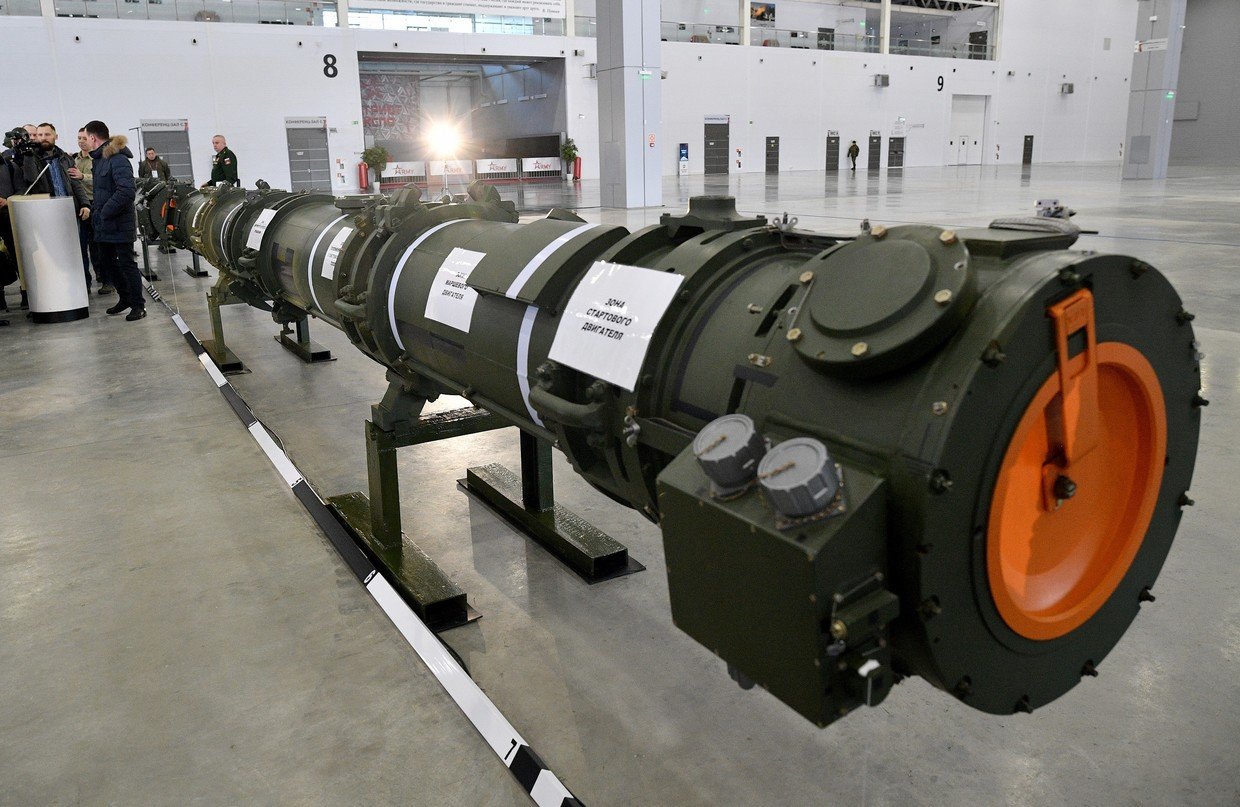Russia unveils evidence on missile that US claims violates INF Treaty, Washington snubs briefing

The Russian military presented evidence contrary to the US claim that Moscow possesses a missile which violates the terms of the INF Treaty. The Americans had been invited to the event but apparently were not interested.
The Intermediate-Range Nuclear Forces Treaty (INF) was signed by the US and the USSR to denuclearize the European continent. The treaty bans ground-based missiles with a range between 500km and 5,500km – plenty of which had been deployed by both sides of the Cold War by the time it was signed. The US is about to scrap it, citing alleged violations by Russia.
Despite claims from Washington, the American move is motivated by America’s self-interest, not anything done by Russia, told journalists on Wednesday Russian Deputy Foreign Minister Sergey Ryabkov. He took part in a joint conference with top generals from the Russian Defense Ministry, meant to provide extra details about the missile, which the US claims are in breach of the INF. The diplomat stressed that complaints from Washington are simply a pretext to walk away from the deal, which the current US leadership no longer wants.
The recent events make it obvious that some forces in the US are not interested in allowing us to overturn through technical expert dialogue the erroneous – or even fabricated – information, which could resolve this issue once and for all. Hyping up this problem was not done to simply resolve it, obviously.
Speaking alongside Ryabkov was General Lieutenant Mikhail Matveevsky, the commander of the Russian Missile and Artillery Troops, who went into details about the 9M729 missile, the one that the Americans claim to be violating the agreement. Washington says it has intelligence data, which prove that the projectile was tested several years ago for a range banned by the INF. But apparently, it was not interested in evidence from Russia, since no American experts were sent to the event, according to Ryabkov.
The missile, Gen. Matveevsky said, is an upgraded variant of the 9M729, a cruise missile launched by the Iskander-M launcher. Compared to the older version, the 9M729 has a heavier, more powerful warhead, and a more accurate but bulkier targeting system. This required increasing the missile’s length and the size of its transport and launch container.
The size increase made it incompatible with the launcher used for the 9M728 version, so the defense ministry had a new launcher developed for it. It is bigger and carries four 9M729 missiles, compared to two for the 9M728 variant. He showed diagrams of both weapons for comparison.

The increased size had an impact on the range of the 9M729, which is not only below the threshold of the INF, but also about 10km lower than that of the 9M728. The bigger missile can fly up to 480 km, and was tested to that range during a major military exercise in 2017, the official said.
Gen. Matveevsky stressed that the 9M729 is a solid-propellant missile that is sealed in its container at the plant and can not be modified in the field.
As for the US claim that one test of the missile breached the terms of the INF, Matveevsky assured the intelligence was wrong. The launch pad, from which the supposedly violating launch was made, is used by other branches of the Russian armed forces to test their weapons. Those include long-range strategic missiles, the tests of which are conducted with prior notifications of the US, as is required by the transparency rules between the two countries. The general provided statistics for test launches conducted from the site between 2008 and 2014 for reference.
Also on rt.com US & Russia trade blame on INF as last-ditch talks to save nuclear treaty fail in GenevaThe journalists were also given a chance to compare the 9M728 and the 9M729, which were displayed in their containers, and inspect the 9M729 launcher. According to Ryabkov, US military inspectors were offered a chance to take part in the Wednesday event, but Washington chose to ignore it. US officials reportedly said there was no sense inspecting the Russian missile since the Russian side refused to allow opening it up and seeing its classified internal structure.
The diplomat reiterated Russia’s own complaints about US actions, which Moscow sees a violation of the INF, including the use of intermediate-range target missiles during tests of ABM weapons. Russia believes that the INF has to be preserved, Ryabkov added, but stressed that it will not destroy its stockpile of 9M729 missiles, as demanded by the US.
The US indents to withdraw from the INF on February 2, after last-ditch talks in Geneva failed to resolve the stand-off.
Think your friends would be interested? Share this story!














